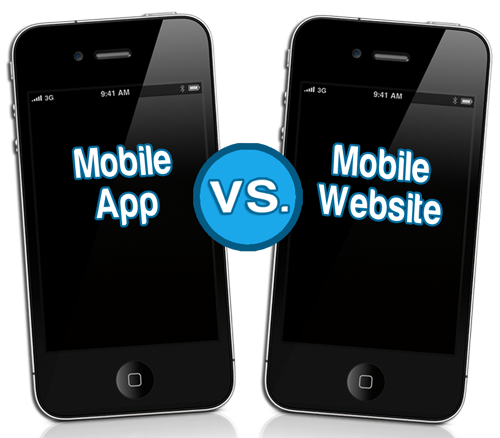
The limelight is moving from ecommerce to mcommerce. Businesses are including a mobile strategy more fiercely than ever. Well, customer behaviors have changed too. Today’s customer does not restrict himself to the PC or laptop to make an online purchase. The new trend is to just tap away on a smartphone and make a purchase.
While talking about mobile commerce, businesses are faced with two distinct choices. Whether to create a native app for their business or to go responsive with the existing ecommerce website? Tough decision!
A native application is one that can be downloaded by a user and installed on their mobile devices to be used as and when they require it.
A responsive website presents a mobile version of your existing ecommerce website.
Both these approaches have their own pros and cons. Here let’s discuss the advantages of a mobile store app over a responsive ecommerce website.
-
Mobile app stores provide for fast and easy access to your online stores. Users can quickly tap on the readily present icon of mobile screens and they are virtually in your store!
-
Ecommerce mobile store apps are specially optimized for mobile devices taking into consideration the screen size, resolutions and auto rotate screen features for the apps. This provides your store customers with great shopping experience increasing your chances of sales and profits.
-
Engaging customers with a unique look and feel as well as browsing experiences makes mobile store apps more appealing to use.
-
Frequency of user visits to your store increases as the app is always “present” and ready to use. This constant availability ensures that your store is busy and as the customer return rates increase, so do your profits and conversions.
-
All apps that are developed and submitted to the app store (for either android, Apple or Windows) are reviewed stringently. This makes them safer and more secure to use.
-
Browsing and scrolling no longer depends on the website speed as the app is downloaded on the local internal memory and uses the processing power of the phone. (Although other factors matter, apps are perceived to be faster).
-
Ecommerce mobile apps can take advantage of the native phone features such as GPS, Camera, and other hardware. This provides more scope for innovation in mobile apps.
Responsive websites on the other hand have advantages too. They are easily accessible from mobile devices and have a search engine optimization appeal too! Other than that, responsive sites give you a great user experience on mobile phones without taking up storage space on the device!
Selecting the right approach for going mobile depends on the business requirements. Just in case the cost factor for developing a mobile app is the cause for hesitation, the good news is that today, there are so many ready to use frameworks and solutions available. You can easily just download one and go mobile instantly! Check out the Magento Mobile Store – it’s a great way to go mobile instantly and it’s affordable too.
On a closing note, ecommerce app for your online store is a great choice if you wish to take up a “faster to market” approach. But that definitely does not mean that the option for creating a responsive site should be eliminated. You never know – your customers might just access your site from a mobile browser! Keep a combination of both the approaches.


